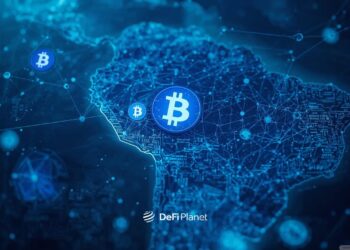In 2024, the gas limit debate has resurfaced, with key stakeholders proposing various solutions to enhance Ethereum’s scalability. Vitalik Buterin has suggested raising the limit to 40 million gas. Others, like researcher Justin Drake, advocate for a more conservative increase to 36 million gas, while some developers argue for an ambitious jump to 60 million.
These proposals highlight Ethereum’s ongoing struggle to balance scalability and decentralization, raising an important question: what are the risks and rewards of increasing Ethereum’s gas limits?
The Rewards of Increasing Ethereum’s Gas Limits
Emmanuel Awosika, creative director at 2077 Collective, pointed out that the current gas limit can hinder the deployment of high-demand applications. He explained that raising the gas limit would give developers more flexibility, allowing them to create ambitious applications without worrying about spikes in gas prices that degrade user experience.
Higher Throughput
Raising the gas limit directly increases Ethereum’s transaction throughput by allowing more transactions per block. In its early days, Ethereum could only process 5-15 transactions per second (TPS). However, as the demand for DeFi protocols, NFTs, and other use cases surged, the network implemented gas limit increases to keep up. For instance, Ethereum’s gas limit hike from 10 million to 12.5 million in 2020 improved the network’s TPS; it went as high as 44 during peak periods.
Higher throughput ensures smoother operations during times of high demand, allowing Ethereum to remain competitive with other blockchain networks. This is particularly important for scaling applications that rely on fast and efficient transaction processing, such as gaming, decentralized exchanges, and real-time financial systems.
Reduced Transaction Fees
Gas limits play a significant role in determining transaction fees. When block capacity increases, competition for block space decreases, which can lead to lower fees. In March 2024, Ethereum developer Eric Connor and former MakerDAO engineer Mariano Conti launched the “Pump The Gas” initiative, advocating for a gas limit increase to 40 million. They estimate this change could cut transaction fees by 15% to 33%, making Ethereum more accessible for users during periods of high network activity.
Today, @nanexcool and I are launching an effort to help raise the Ethereum gas limit from 30mn to 40mn
This can result in a 15-33% reduction in L1 tx fees
We are calling on solo stakers, client teams, pools and community members to help#pumpthegas https://t.co/TYoyI35cle
— eric.eth (@econoar) March 19, 2024
Lower fees benefit a wide range of users, from retail investors engaging in small DeFi transactions to developers deploying smart contracts. Reducing costs not only improves user satisfaction but also encourages greater adoption of Ethereum-based applications, strengthening its ecosystem.
Improved User Experience
Higher gas limits also enhance the overall user experience by reducing transaction delays. During high-demand periods, congestion often leads to slower transaction confirmations, which can frustrate users. By increasing block capacity, Ethereum can accommodate more transactions, minimizing delays and ensuring smoother operations.
This is particularly valuable for DeFi users, who rely on timely confirmations for activities like yield farming and liquidity provision, as well as for NFT traders during competitive minting events. Platforms with high transaction volumes, such as gaming or Layer 2 applications, also stand to benefit, as reduced congestion translates into a more reliable experience.
The Risks of Increasing Ethereum’s Gas Limits
Toni Wahrstätter from the Ethereum Foundation has warned that increasing the gas limit too quickly could destabilize the network. The following are some of the reasons why this concern should be taken seriously.
Network Latency and Propagation Delays
Larger gas limits translate into larger block sizes. Increasing the block size requires more data to be transmitted across the network, which can cause delays. Research by the Ethereum Stack Exchange found that propagation time increases significantly for each additional megabyte in block size.
Validators will start to need more time to broadcast new blocks to other nodes, and if propagation is slow, it can delay consensus, the process by which the network agrees on the latest valid block. In extreme cases, this could lead to validators operating on conflicting versions of the blockchain, posing a risk to network security.
Strain on Node Infrastructure
Larger blocks also mean higher storage requirements for nodes, which must maintain a complete record of the blockchain. For smaller node operators, this can become cost-prohibitive, leading to a decline in their participation. This trend could result in a network dominated by larger, well-funded entities, compromising the decentralization that is key to Ethereum’s resilience and security.
In addition, increased hardware and storage demands could slow down node synchronization, making it more challenging for new participants to join the network. This raises long-term concerns about Ethereum’s accessibility and inclusivity.
Centralization Risks
Increasing the gas limit has hardware implications for validators. Larger blocks require more powerful hardware with faster CPUs, increased RAM, and additional storage. Smaller validators may find it difficult to keep up with these demands, potentially forcing them to exit the network.
This creates a risk of centralization, as larger organizations with sufficient resources could dominate the validation process. Fewer independent validators would reduce the diversity and decentralization of Ethereum, concentrating control in the hands of a few dominant players—a scenario that contradicts the network’s foundational principles.
The Balancing Act: Scalability vs. Decentralization
The trade-offs between scalability and decentralization are at the heart of Ethereum’s gas limit debate. While increasing the gas limit offers immediate benefits, such as higher throughput and lower fees, the associated risks cannot be ignored.
It is worth mentioning that “dynamic gas limits”, which adjust based on real-time network conditions, are also being explored as a way to address congestion without the risks of static increases. Such innovations could provide a balanced approach to scaling, allowing Ethereum to support its growing ecosystem while preserving its core values.
In conclusion, this debate has once again brought a subtle truth to the fore: Ethereum’s long-term success depends on its ability to maintain decentralization while scaling effectively to meet user demands.
Disclaimer: This article is intended solely for informational purposes and should not be considered trading or investment advice. Nothing herein should be construed as financial, legal, or tax advice. Trading or investing in cryptocurrencies carries a considerable risk of financial loss. Always conduct due diligence.
If you would like to read more analyses like this, visit DeFi Planet and follow us on Twitter, LinkedIn, Facebook, Instagram, and CoinMarketCap Community.
Take control of your crypto portfolio with MARKETS PRO, DeFi Planet’s suite of analytics tools.”





















